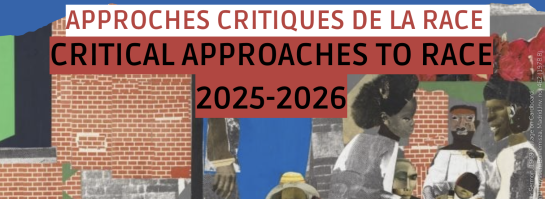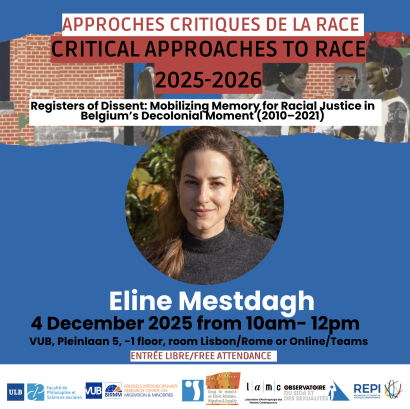
Registers of Dissent: Mobilizing Memory for Racial Justice in Belgium’s Decolonial Moment (2010–2021)

Between 2010 and 2021, public discourse on anti-racism in Belgium shifted from a focus on multiculturalism and diversity to an emphasis on colonial memory and decolonisation. I first conceptualise these years – drawing on Chantal Mouffe’s notion of a ‘populist moment’ – as a ‘decolonial moment’: a conjunctural period in which Afrodescendant and decolonial movements gained unprecedented public visibility, the language of ‘decolonisation’ entered policy, and colonial memory became central to the pursuit of racial justice. Drawing on ethnographic and historical research conducted in Brussels, I then discursively examine three activist memory campaigns: (1) the struggle to decolonise public space, including the campaign for Lumumba Square; (2) community-based memory work focused on youth empowerment in Saint-Josse-ten-Noode; and (3) a grassroots participatory truth commission responding to the 2020 parliamentary Congo Commission. While each mobilised memory as a central tool for racial justice, they did so through distinct registers of dissent: a cognitive–academic register of truth and education, an existential–therapeutic register of healing and repair, and an identity–representative register of epistemic legitimacy and visibility. I argue that these registers are flexible and relational strategies that render shared claims to racial justice intelligible across different public, political and institutional contexts. Theoretically, this lecture can be read as an of epistemic disobedience in itself: challenging the prevailing assumption within memory studies – the interdisciplinary field devoted to collective memory – that memory and memory politics hold inherently transformative or emancipatory qualities. By tracing the multiple ways in which the relationship between ‘memory’ and ‘racial justice’ is articulated, it calls for a pluralist, context-sensitive understanding of decolonial memorial justice – one that asks which memories are seen as emancipatory, why, when, and for whom.
About the speaker:
Eline Mestdagh is a historian working at the intersections of memory studies, post- and decolonial theory, and public history. She obtained her PhD in History from Ghent University with a dissertation on the mobilisation of colonial memory for racial justice in Belgium between 2010 and 2021. She is currently a postdoctoral researcher at KU Leuven on the ERC project Traveling Memories, Silences, and Secrets: Life Narratives of Violence Among Refugees from Africa’s Great Lakes Region. Her research interests include public engagements with the past in all their forms, from grassroots memory activism to populist politics of history. She co-edited Claiming the People’s Past: Populist Politics of History in the Twenty-First Century (Cambridge University Press, 2024), and co-chairs the Memory and Activism Working Group of the Memory Studies Association.
When: December 4th from 10:00 AM until 12:00 PM
Where: VUB, Pleinlaan 5, -1 floor, room Lisbon/Rome OR Online (teams)

